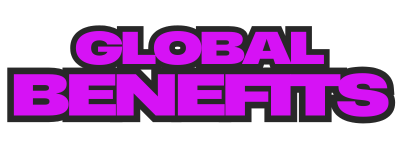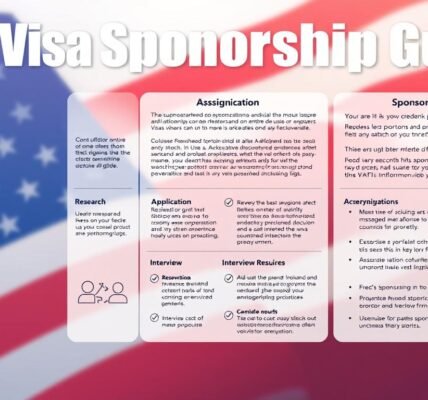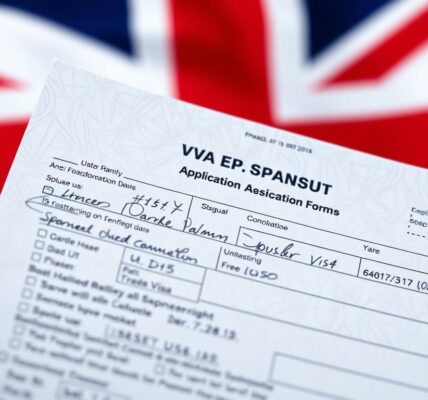Efficient Pathways to USA Nursing Visa Sponsorship: Visa Classifications, Sponsorship Obligations, and Career Growth
For healthcare professionals in Nigeria, working in the united states offers incredible opportunities.
Many seek pathways through specialized visa programs to build their career in a thriving healthcare system. Programs like the H-1B visa and Green Card provide long-term employment options, making it easier for skilled nurses to relocate.
Employers play a key role in this process. They often assist with licensure and immigration procedures, ensuring a smooth transition. Organizations like Fresenius International RN Program and O’Grady Peyton are known for their support in helping professionals settle into their new roles.
With over 175,000 annual openings in hospitals, the demand for skilled nurses is high. Competitive salaries, averaging $82,750 per year, make this an attractive option for those looking to advance their career in the united states.
For more information explore the official visa website mentioned in this article:
You will be redirected to another website
Introduction to Nursing Visa Sponsorship USA
Skilled healthcare professionals from Nigeria are finding new opportunities abroad. The demand for trained medical staff is growing, with an 11% job growth projected through 2032. This creates a favorable environment for those seeking employment in thriving healthcare systems.
Many organizations assist with the transition. For example, Fresenius provides support for families and helps with licensure. O’Grady Peyton offers 24/7 arrival assistance, including help with bank setup and driver’s licenses.
Nigerian professionals have shown remarkable success in meeting requirements. A 92% success rate has been recorded for those completing the NCLEX-RN through sponsor prep programs. This highlights the effectiveness of these initiatives.
There are two main pathways for relocation: employer-sponsored and self-petitioned processes. Employer-sponsored options often include Visa Screen™ certification, which is essential for credentialing foreign-educated professionals. CGFNS certification is also crucial for Green Card eligibility.
For instance, Fresenius requires at least nine months of experience for supervisory roles. The typical sponsorship timeline ranges from 12 to 18 months, from application to relocation. This ensures a smooth transition for international nurses.
Understanding Visa Classifications for Nurses
Navigating the immigration process for healthcare professionals involves understanding key visa classifications. Two primary options stand out for registered nurses: the H-1B visa and the Green Card. Each has distinct features, requirements, and benefits that cater to different career goals.
H-1B Visa for Registered Nurses
The H-1B visa is a temporary work permit designed for specialty occupations. For registered nurses, this visa is ideal for those in specialized roles, such as critical care or surgical nursing. It allows professionals to work in the U.S. for up to three years, with the possibility of extension.
To qualify, nurses must meet specific criteria, including a minimum salary threshold of $110,000 for specialty roles. Employers like Fresenius often require candidates to pass the NCLEX and obtain a state license. This ensures that nurses meet the standards of the U.S. healthcare system.
Green Card (Permanent Residency) for Nurses
The EB-3 Green Card offers a permanent solution for registered nurses seeking long-term employment. Unlike the H-1B visa, it provides permanent work authorization and includes immediate family members. Organizations like O’Grady Peyton sponsor Green Cards, helping nurses and their families settle in the U.S.
To apply, nurses must complete the CGFNS Visa Screen™ and achieve an IELTS score of 7.0. These steps ensure that foreign-educated professionals meet the necessary credentialing standards. The process typically takes 12 to 18 months, offering a clear pathway to permanent residency.
| Feature | H-1B Visa | EB-3 Green Card |
|---|---|---|
| Duration | 3 years (extendable) | Permanent |
| Family Inclusion | No | Yes |
| Processing Fees | $2,500 | $3,675 |
| Requirements | NCLEX, state license | CGFNS Visa Screen™, IELTS 7.0 |
Employer Obligations in Nursing Visa Sponsorship
Employers play a pivotal role in helping healthcare professionals transition smoothly. They provide essential support throughout the application and relocation process, ensuring a seamless experience for candidates. From visa assistance to licensure verification, their involvement is critical.
Visa and Immigration Process Support
Employers often handle the complexities of visa and immigration procedures. For instance, they submit Form I-129 for H-1B petitions and ensure compliance with legal requirements. This includes meeting the Department of Labor’s PERM labor certification process.
Many organizations also offer cultural competency training to prepare candidates for their new environment. This ensures a smoother transition and helps professionals adapt quickly.
Licensure and Credentialing Assistance
Licensure is a critical step for healthcare professionals. Employers assist with state board of nursing credential verification, which typically takes 4-6 months. Some, like AMN Healthcare, expedite license endorsements to speed up the process.
Sponsors also provide NCLEX prep materials and other resources to help candidates meet licensure requirements. This support is invaluable for foreign-educated professionals navigating a new system.
- Employers invest $15k-$25k on average for sponsorship.
- Relocation packages often include $5k-$10k for flights and shipping.
- Housing assistance and temporary accommodations are provided by organizations like Fresenius.
Career Growth Opportunities for Nurses in the USA
Healthcare professionals relocating abroad often seek pathways that offer both stability and growth. The U.S. healthcare system provides numerous opportunities for advancement, making it an attractive destination for skilled workers. From competitive salaries to leadership roles, the possibilities are vast.
Long-Term Employment and Advancement
Many organizations support long-term employment and career progression. For example, Fresenius offers the CAP advancement program, which helps professionals climb the clinical ladder. Similarly, O’Grady Peyton provides pathways from Charge Nurse to Director of Nursing roles.
Clinical ladder programs are particularly beneficial. They increase earnings by 15% every two years, rewarding experience and expertise. Leadership roles also come with added responsibilities and higher pay, making them a worthwhile goal.
Competitive Pay and Benefits
Compensation packages in the U.S. are highly attractive. Med-surg nurses in Florida hospitals earn between $35 and $50 per hour. Shift differentials can add over $10,000 annually, especially for night shifts.
Benefits extend beyond salary. Major health systems like HCA Healthcare offer 401(k) matching up to 6%. Tuition reimbursement programs cover $5,000 to $10,000 annually for advanced degrees, such as MSN or NP certifications.
| Benefit | Details |
|---|---|
| Salary Range | $35-$50/hour for med-surg nurses |
| Shift Differentials | $10k+ annual bonus for night shifts |
| 401(k) Matching | Up to 6% at major health systems |
| Tuition Reimbursement | $5k-$10k annually for advanced degrees |
Steps to Secure Nursing Visa Sponsorship USA
Securing a pathway to work abroad involves a clear understanding of the necessary steps. For healthcare professionals, this includes meeting specific requirements and following a structured application process. Organizations like O’Grady Peyton and Fresenius set clear guidelines to ensure candidates are well-prepared.
The first step is completing the CGFNS evaluation. This ensures that foreign-educated professionals meet the credentialing standards. Candidates must also prepare for the NCLEX-RN exam, which typically requires a 6-month study plan.
Next, gather all necessary documents. This includes notarized diplomas, employment letters, and passport copies. Having these ready speeds up the application process and avoids delays.
- Prepare for interviews with U.S. hospital recruiters. Common questions focus on clinical experience and adaptability.
- Complete the medical examination, following the CDC-approved vaccination schedule.
- Attend the visa interview. Success rates vary by consulate, so research tips specific to Lagos or Abuja.
After approval, pay the SEVIS fee and prepare for port of entry procedures. These final steps ensure a smooth transition to your new role.
By following this structured process, candidates can navigate the program efficiently. Organizations like Fresenius require at least nine months of RN experience, while O’Grady Peyton mandates 12 months of clinical experience. Meeting these requirements is essential for success.
Conclusion
Relocating to the united states offers healthcare professionals a chance to explore permanent residency pathways and include their families in the journey. With resources like Fresenius’ relocation team, the transition becomes smoother and more manageable.
To get started, candidates should focus on completing the CGFNS evaluation and English testing. These steps are crucial for meeting credentialing standards. Major hospitals report an 89% retention rate for sponsored professionals, highlighting the stability of these opportunities.
It’s essential to work with accredited sponsors and avoid unauthorized consultants. This ensures a secure and legitimate process. Additionally, professionals can expect significant salary increases, often exceeding $15k compared to roles in Nigeria.
By leveraging these resources and following the right steps, healthcare professionals can unlock remarkable career growth and seize the opportunities available in the U.S. healthcare system.
FAQ
What are the main visa options for registered nurses in the United States?
The primary visa options include the H-1B visa for temporary work and the Green Card for permanent residency. Both pathways require employer sponsorship and meet specific eligibility criteria.
What support do employers provide during the immigration process?
Employers often assist with visa applications, legal documentation, and navigating immigration requirements. They may also help with licensure and credentialing to ensure compliance with state regulations.
How does a Green Card benefit international nurses?
A Green Card offers permanent residency, allowing nurses to live and work in the U.S. indefinitely. It also provides opportunities for career advancement and the ability to bring family members.
What are the key steps to secure visa sponsorship as a nurse?
Key steps include obtaining a valid nursing license, passing the NCLEX-RN exam, securing a job offer from a U.S. employer, and completing the visa application process with required documents.
What career growth opportunities are available for nurses in the U.S.?
Nurses can access long-term employment, competitive salaries, and benefits. Opportunities for specialization, leadership roles, and continuing education further enhance career progression.
How long does the visa sponsorship process typically take?
The timeline varies based on the visa type and individual circumstances. Processing can take several months, including time for credential verification, application review, and interviews.
Can family members accompany nurses on a sponsored visa?
Yes, most visa types allow nurses to bring immediate family members. Dependents may also apply for work or study permits depending on the visa category.
Published on: 29 de May de 2025





